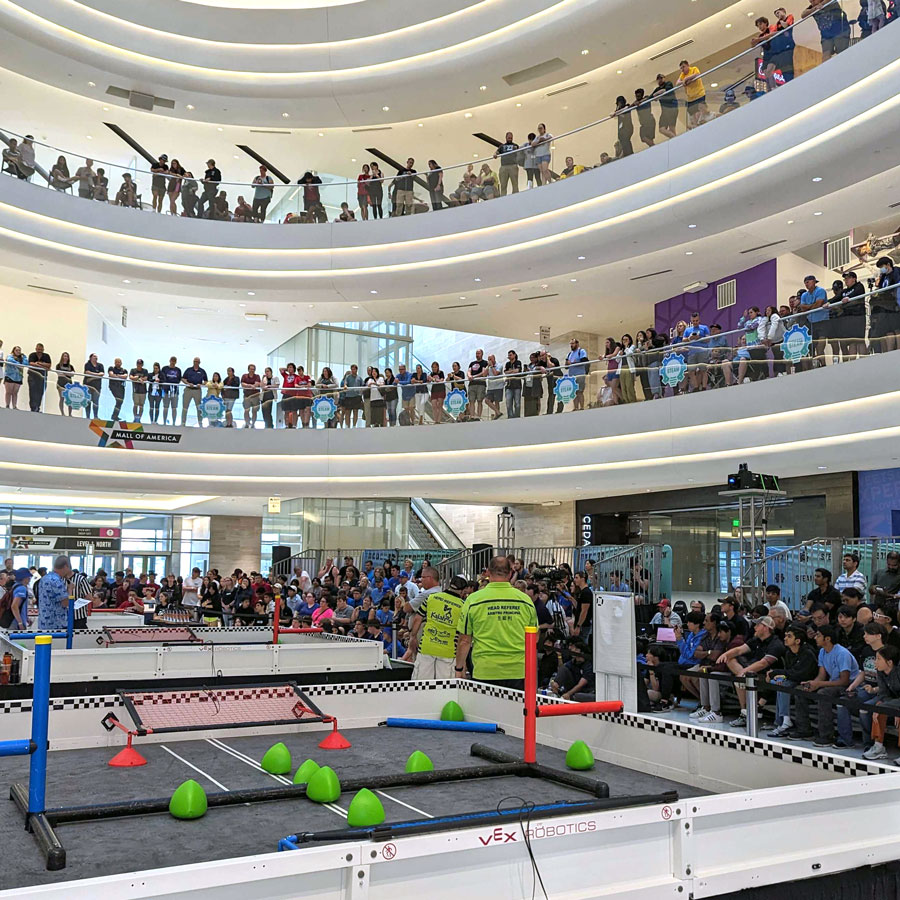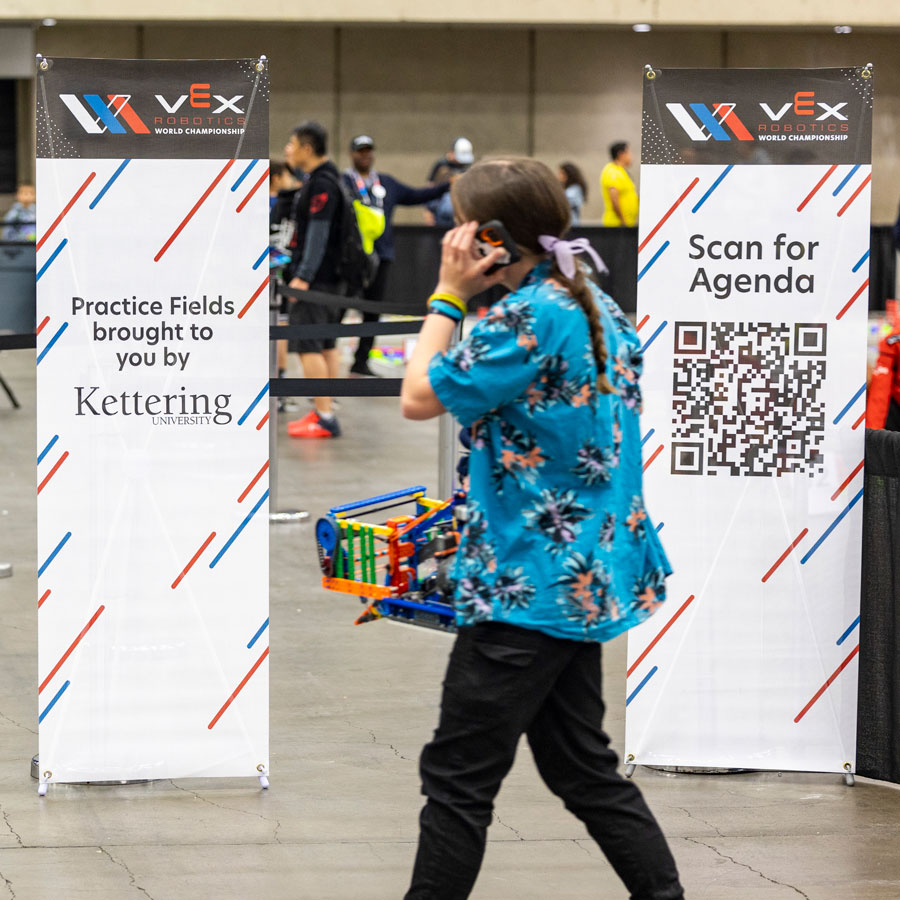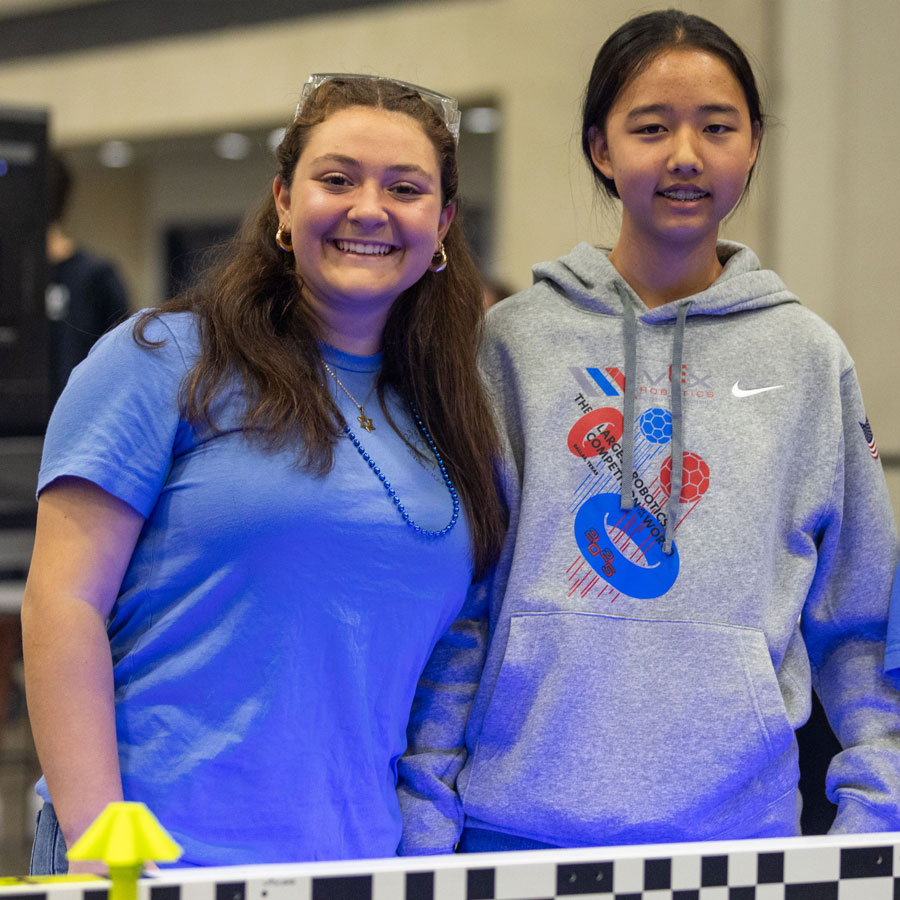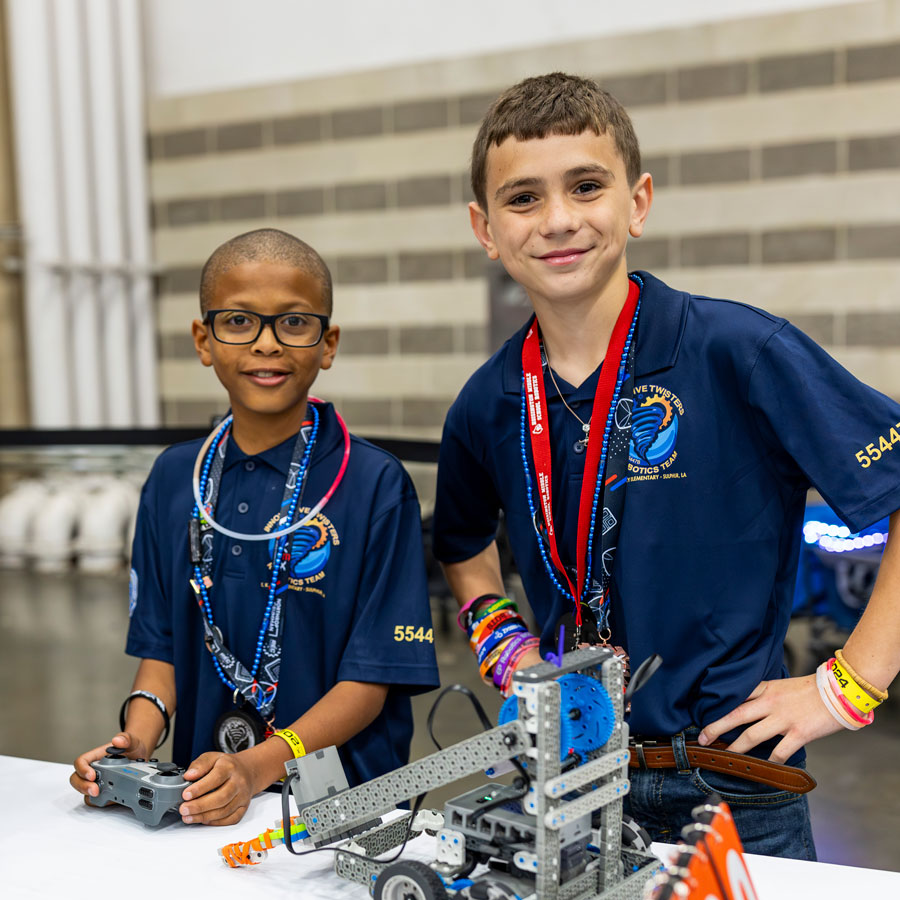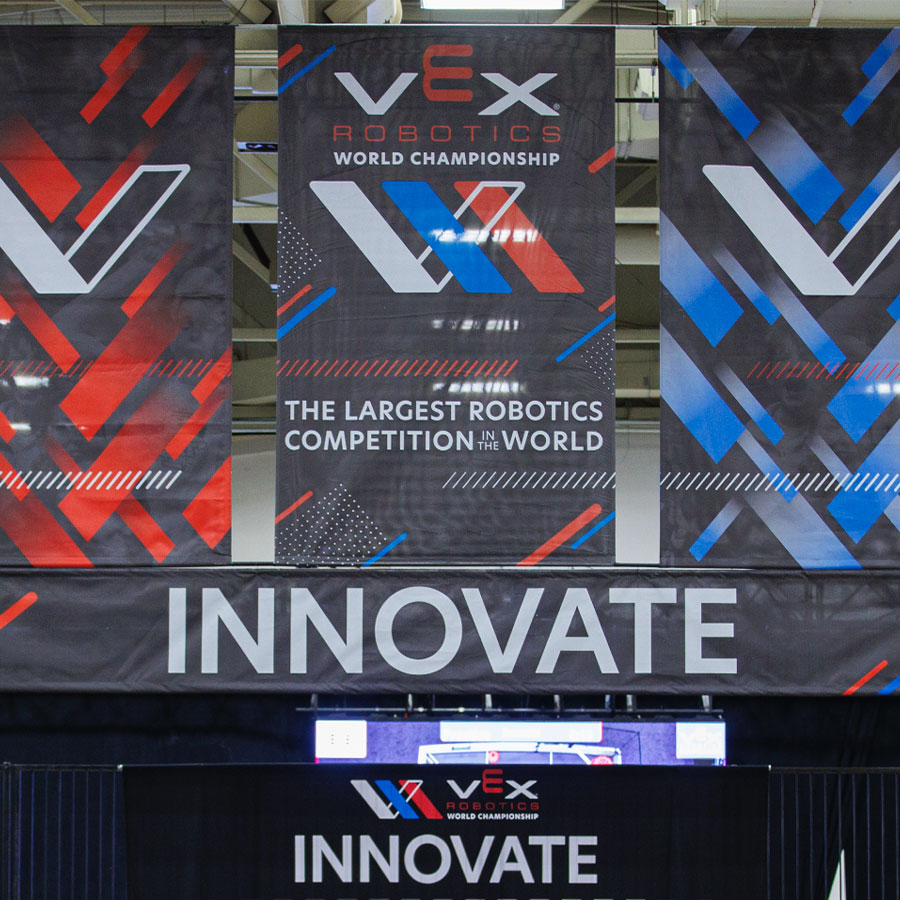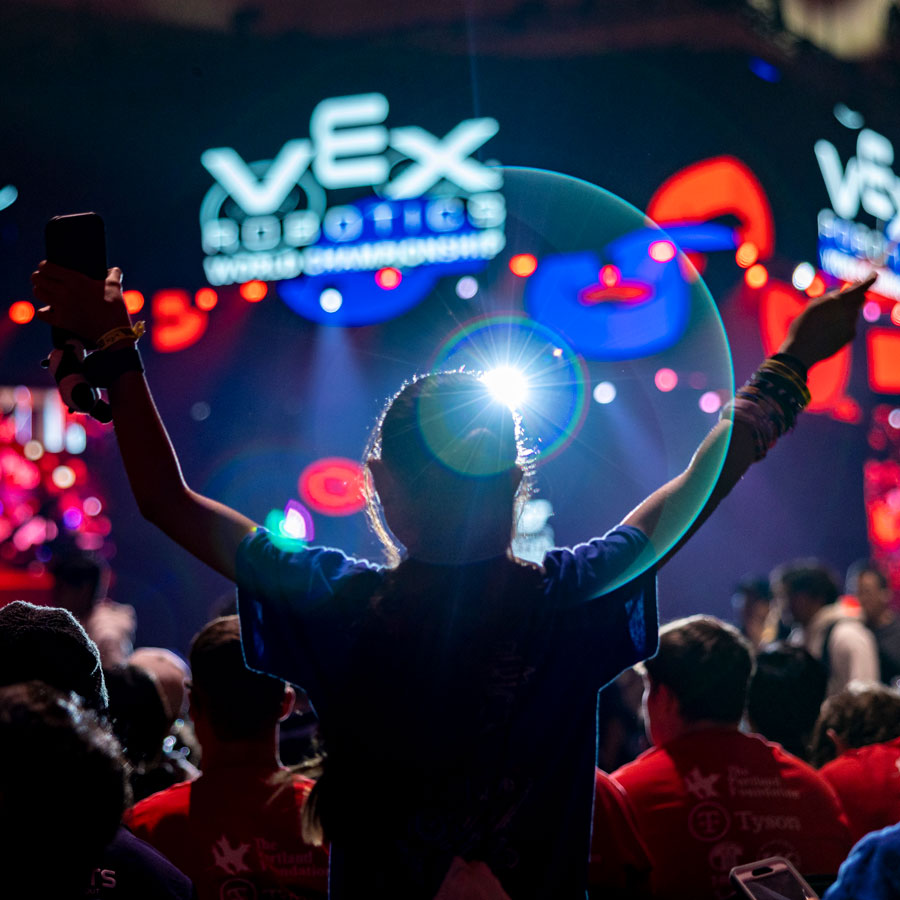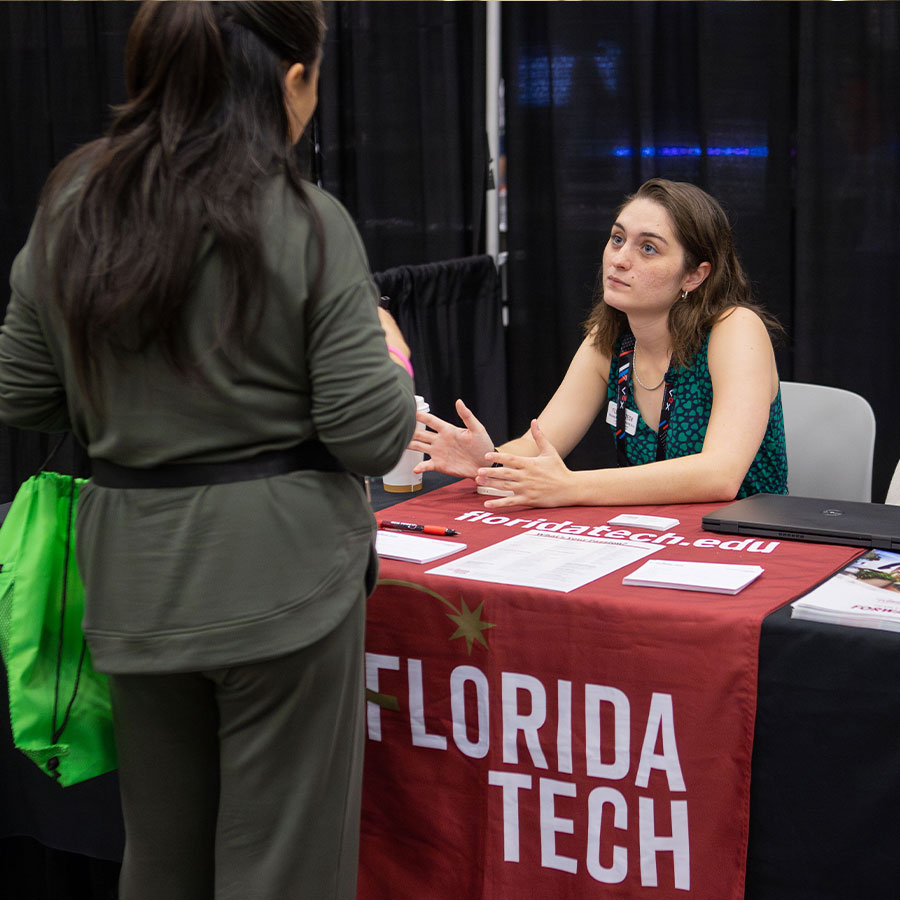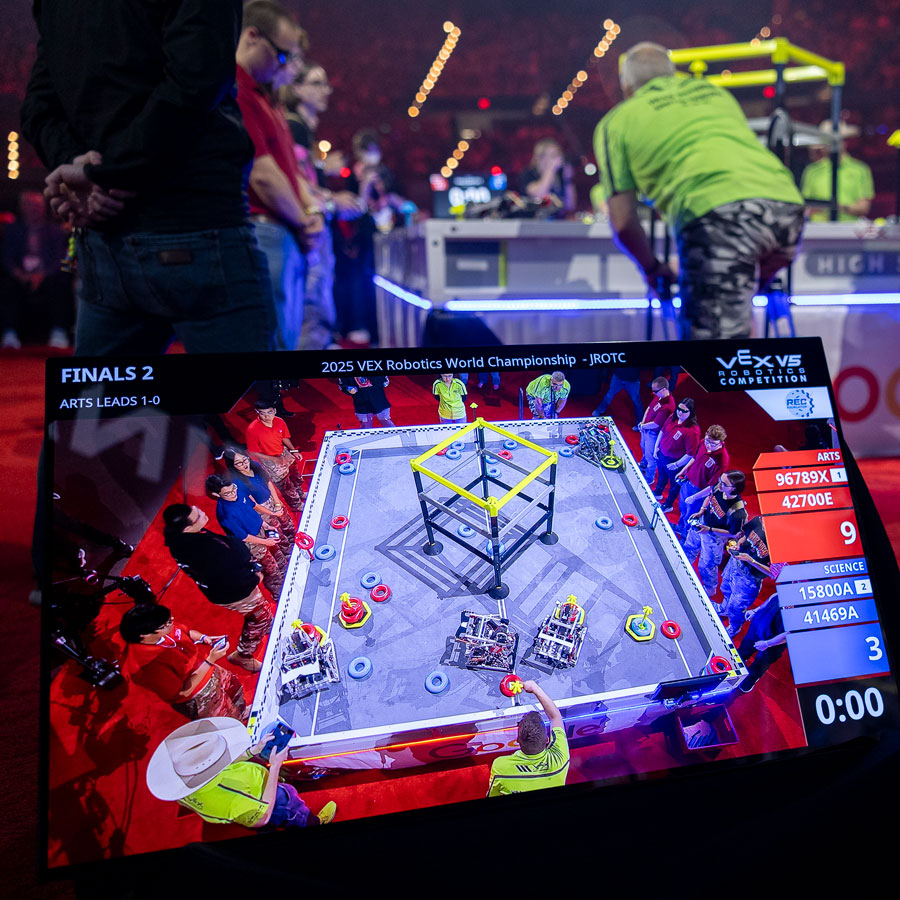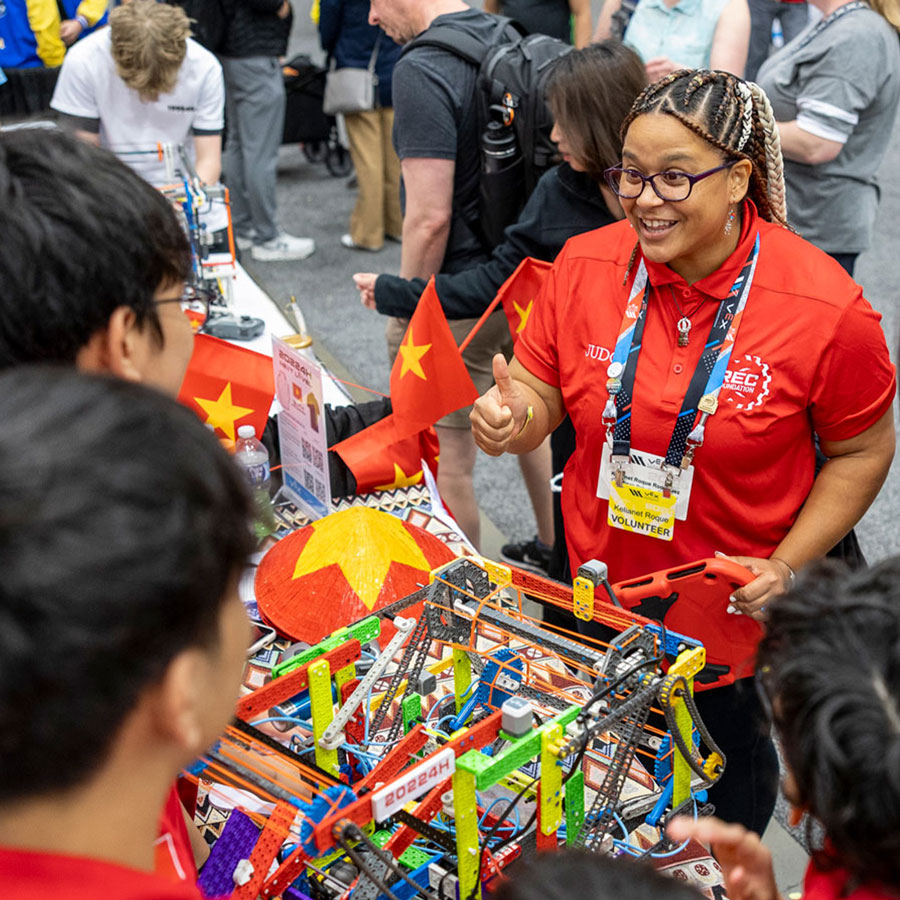
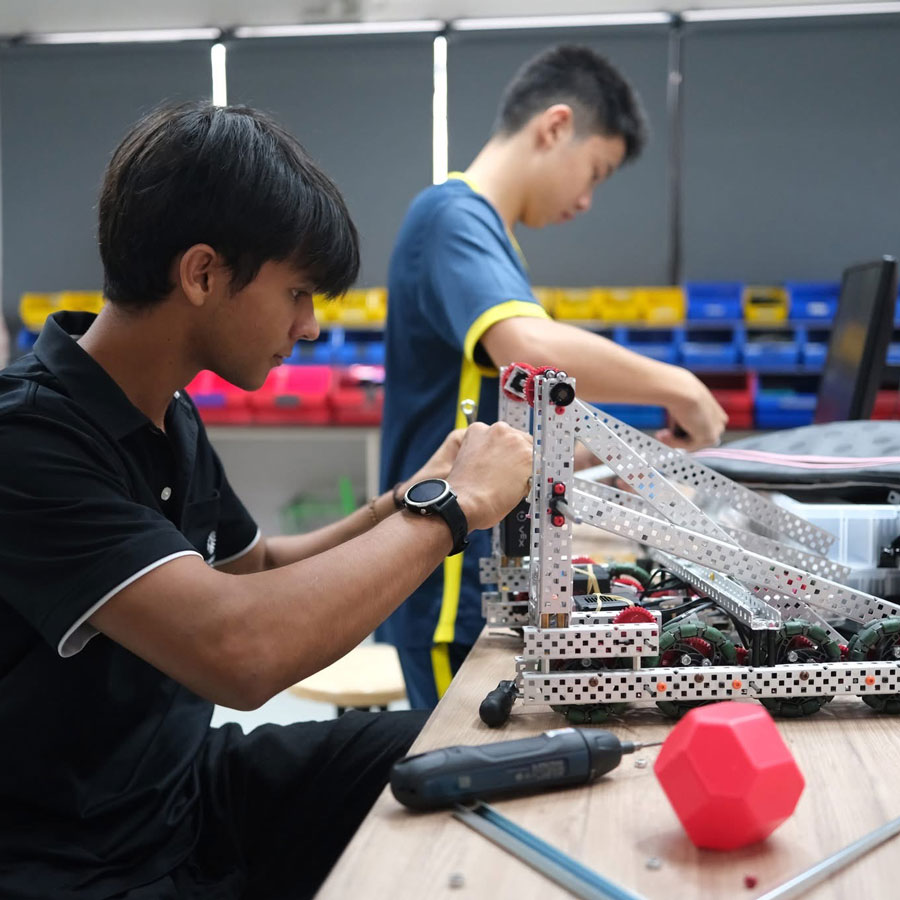
For 17-year-old Mathias Paramel, what began as a hobby building radio-controlled (RC) planes has evolved into a passion for robotics, automation, and aviation. “My dad and I used to build drones together,” he recalls. “Then I started watching creators on YouTube, learned to build my first RC plane from foam board, and realized I wanted to keep creating things that move.”
That curiosity led Mathias to join the VEX Robotics program at St. Andrew’s International School in Bangkok, part of the global community supported by the Robotics Education & Competition Foundation (RECF). Under the mentorship of Coach Rob Parker, Mathias quickly went from a newcomer to a seasoned team leader, guiding his peers to the finals of Thailand’s National Championships.

Rob is a longtime educator with backgrounds in both cybersecurity and engineering, and has seen firsthand how the VEX CTE Workcell program has transformed learning at St. Andrew’s. As an inclusive school with students of all learning abilities, the school customized the program to fit its classroom needs. Students designed and 3D-printed their own components and now run factory automation simulations that bring computer science concepts to life.
Mathias played a central role in adapting the CTE program, developing a hands-on curriculum that aligns with the school’s computer science requirements and brings abstract concepts, such as sensors, microprocessors, and automation, to life through real-world applications.

Artificial intelligence is also changing how students design, debug, and think. Mathias and his team use AI as a tool to troubleshoot code, identify errors, and refine their work more efficiently.
Rob agrees, noting the transformative impact that shift has had. By using AI to help problem-solve and refine their work, students learn to think critically rather than simply seeking ready-made answers.

While St. Andrew’s teams compete at a high level, Rob emphasizes that competitions are only part of the story. “Yes, winning is exciting,” he says, “but it’s the teamwork, communication, and leadership skills that matter most. Those are the qualities that set students apart when they move on to university or careers.”
The robotics community at St. Andrew’s has also grown into a vibrant ecosystem of students, parents, and volunteers. Last season alone, more than 115 volunteers, including judges, scorekeepers, referees, and parents, helped host RECF events, creating an atmosphere Rob describes as “electric.”

“Everything I do connects back to robotics,” Mathias reflects. “It’s taught me to lead, to think critically, and to create. That’s what I want to keep doing.”
For Rob, the impact is clear. Many students who never considered engineering are now pursuing mechanical or robotics degrees at universities such as Purdue and Manchester, proof of how these programs can transform how students see themselves and their futures.
When asked what advice they’d give to new students or coaches, both Rob and Mathias offer the same answer: just start. “Don’t worry about being perfect. Learn alongside your students. The goal isn’t just to win, it’s to grow,” said Rob.
Mathias agrees. “Try it. You’ll discover what you’re capable of.”
